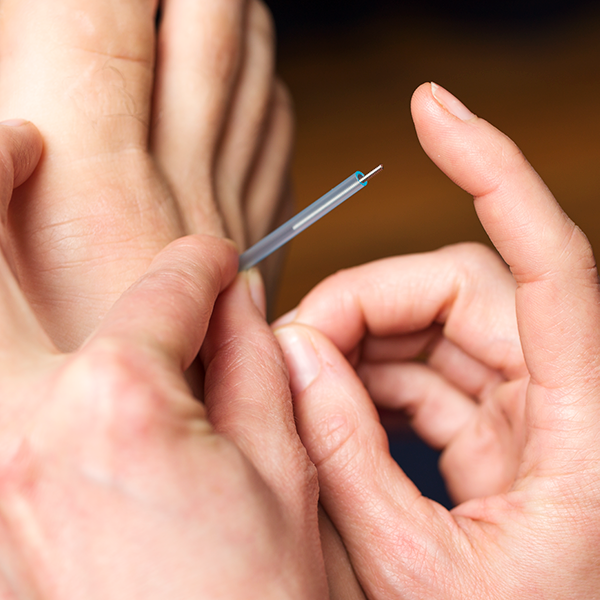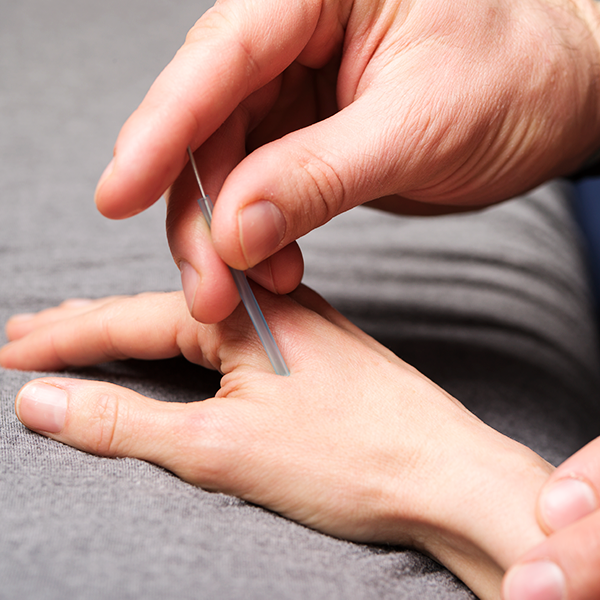Frequently Asked Questions
What happened to community acupuncture?
We changed from community acupuncture to semi-private acupuncture as a health and safety measure in the face of the pandemic, but we really like the change from four patients per hour in the community acupuncture model to two patients per hour with semi-private acupuncture. A sliding scale is still available to those who demonstrate need.
What's the difference between semi-private acupuncture and private acupuncture?
In a private session, which costs more, you get a private room and more time with your practitioner to discuss your condition and receive additional treatment, usually in the form of getting acupuncture on both the front and back of the body. People will often choose a private session for their first treatment if they are coming in with complicated issues or problems of a sensitive nature that they would rather not discuss in a semi-private space.
Is my acupuncture appointment really only 30 minutes long?
No! That's just the way we block off appointments; after the needles are in you get to relax for 20-40 minutes while the acupuncturist moves on to other patients. And if you booked a private appointment, you get even more time, up to 85 minutes total.
Does acupuncture hurt?
Acupuncture needles are very fine and flexible; while you may feel a tiny pinch during insertion, it’s nothing like getting an injection. For many first-time acupuncture patients, their response to the first needle is: "that was it?" Occasionally there is a mild stinging or burning upon insertion that usually goes away within a few seconds. If it doesn’t, let us know! We can remove or adjust the needle so that the sensation doesn’t interfere with your being able to relax during treatment.
Other sensations associated with acupuncture include a dull ache, tingling, heaviness, or warmth radiating from the site, or sometimes a brief “twang” from muscles located under an acupoint. Most people find acupuncture to be a comfortable and profoundly relaxing experience.
Is it safe?
Acupuncture is widely acknowledged as one of the safest forms of medicine. Acupuncture needles are pre-sterilized, individually packaged, and disposable. Acupuncturists undergo extensive training and are regulated by the individual states’ medical board.
Pregnant women and people with pacemakers or bleeding disorders should let us know of their condition so that we can take appropriate precautions; there are certain points and techniques that should be avoided in these situations. Side effects are rare and usually mild. Occasionally a small temporary bruise may appear at the site of an acupuncture needle, and very rarely people have been known to faint.
What does it treat? How does it work?
Acupuncture has been used for thousands of years to treat most if not all of the myriad problems that can befall a person. That’s because the point (pardon the pun) of acupuncture is to improve the overall functioning of the human body.
The theories behind acupuncture are complex, but they boil down to this: Everything going on in your body affects and is affected by everything else. This "everything", the sum total of your body’s functionality, is known as your "Qi". Whenever your Qi gets blocked (as it does when you injure your shoulder, for example) or deficient (as happens in a chronic illness, or even when you just haven’t had enough sleep) or disordered (stress is very good at disordering Qi), it can’t flow as it’s supposed to, and you end up in pain, or exhausted, or suffering some other kind of unpleasant symptoms. It’s the acupuncturist’s job to get your Qi flowing again.
Modern researchers have been busy documenting the measurable effects of acupuncture, and they have found it to increase blood flow, decrease inflammation and pain, and modulate hormone levels and brain activity. The World Health Organization has listed more than 40 conditions for which acupuncture may be indicated:
Addiction (alcohol, drug, smoking), Anxiety, Arthritis, Bronchitis, Carpal Tunnel Syndrome, Chronic Fatigue, Colitis, Common Cold, Constipation, Depression, Diarrhea, Digestive Trouble, Dizziness, Dysentery, Emotional Problems, Eye Problems, Facial Paralysis, Fatigue, Fibromyalgia, Gingivitis, Headache, Hiccough, Incontinence, Indigestion, Infertility, Irritable Bowl Syndrome, Low Back Pain, Menopause, Menstrual Irregularities, Migraine, Morning Sickness, Nausea, Osteoarthritis, Pain, PMS, Pneumonia, Reproductive Problems, Rhinitis, Sciatica, Shoulder Pain, Sinusitis, Sleep Disturbances, Sore Throat, Stress, Tennis Elbow, Tooth Pain, Trigeminal Neuralgia, Urinary Tract Infections, Vomiting and Wrist Pain.
How often do I need to come in for treatment?
In general, more acute conditions call for fewer treatments closer together, while chronic conditions require more treatments over a longer period of time. Typically, people come in once or twice a week to start. Once your condition is stabilized, you won’t need to come in as frequently.
What are your rates?
Click here to go to the services and pricing page.
What forms of payment do you accept?
Cash and credit and debit cards.
Do you take insurance?
No, but if you have health insurance that pays for acupuncture, we can provide a Superbill that provides all the information you need to submit to your insurance company for reimbursement. If you have an HSA or flexible health spending account, you can use this to pay for acupuncture.
How do I make an appointment?
You can schedule your appointment on your home computer through MindBody. Here’s how:
- Select New Patients Only or Existing Patients Only from the drop down menu.
- Select a Practitioner from the Instructor drop down menu.
- Select a Day and Time.
- Choose your appointment and click Book.
- New Patients follow the prompts to create an account. Existing Patients please log in to continue.
- Confirm details and click Book Appointment.
If you’d like to schedule an appointment on your mobile device, please download the MindBody app.
Where are you located? Is there parking?
Our office is located at 1315 Federal Street, Philadelphia, PA 19147 on the corner of Juniper and Federal. Our entrance is on Juniper Street. Street parking is free but parking restrictions vary by block; since we are right by the Ellsworth/Federal subway stop we encourage you to take public transportation!
What should I wear?
Loose, stretchy, comfortable clothing. If there’s a body part you’d like treated – your knee, for example – be sure that whatever you’re wearing allows for access to that part. Shorts, wide legged yoga pants, and sports bras or tank tops are all excellent choices. (Don’t worry, it’s warm in here!)
What’s that smoky smell?
It’s moxa, otherwise known as mugwort. We burn it on the ends of needles to warm them.
I threw out my back; my wife has insomnia. Should I see Vito and should she see Eva?
It’s entirely up to you! Both Vito and Eva are extremely well rounded practitioners with many years of experience treating almost everything. Choose the days and times that work with your schedule.
What’s with the one-eyed little guy on your sign?
He’s a Daruma, a doll traditionally given in Japan to someone starting a new venture, or as a birthday or New Year’s gift. The Daruma is heavy on the bottom and bounces back when tipped over, so it has become a symbol of optimism, good fortune and strong determination. They are sold without the eyes painted in. The custom is to make a resolution and paint in the left eye of the daruma; the other eye is painted in when the goal is reached.



